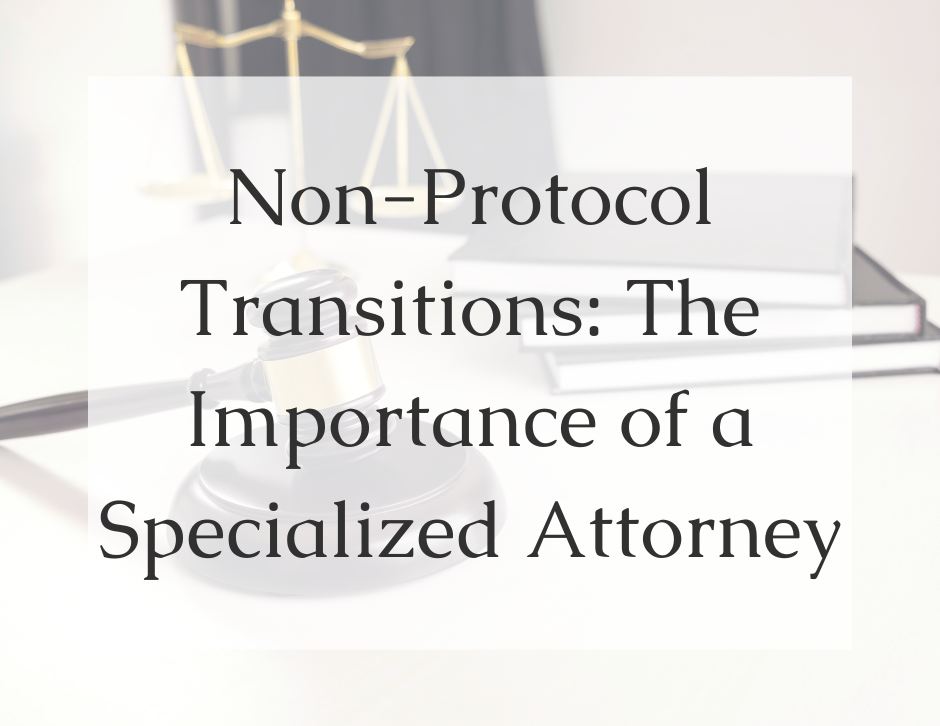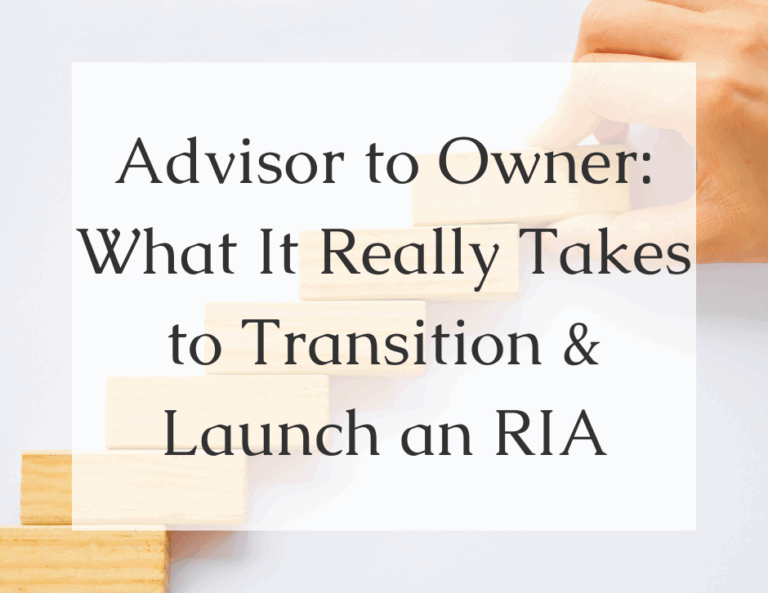Non-Protocol Transitions: The Importance of a Specialized Attorney
Transitioning to a new firm is one of the most critical career decisions a financial advisor can make. Many advisors tend to underestimate the complexity involved, particularly when departing from a broker-dealer that is not part of the Broker Protocol. Recent news highlights several cases resulting in severe financial and professional consequences for the mishandling of private client data and improper solicitation of individuals. Such scenarios underscore the importance of clearly understanding your current employment contract and complying with industry standards to avoid costly legal disputes during non-protocol transitions. Seeking counsel from an attorney who specializes in contract review for advisor transitions isn’t just recommended – it’s essential.
The Broker Protocol
Executed in 2004 between Smith Barney, Merrill Lynch, and UBS, the Broker Protocol was established to govern the use of client information when registered reps move between firms. J.S. Held administers The Protocol and maintains and distributes the lists of signatory firms and their contact information. For The Protocol to apply to the situation, all firms involved in the move must be signatory firms. To join, a firm must complete, sign, and submit the Joinder Agreement.
What Exactly is a Non-Protocol Transition?
For firms that are not part of The Broker Protocol, the advisors leaving them are subject to the restrictions outlined in their employment contracts – which can be extremely limiting. Many advisors leaving non-protocol firms are prohibited from bringing any client information. That data is generally protected under their privacy policy, and advisors are forced to source it from publicly available resources. They’re commonly also dealing with non-solicitation clauses that can be tricky to navigate. Without careful consideration and clear legal guidance, departing advisors risk significant legal actions. Hence, the importance of seeking the right assistance.
The High Cost of Getting it Wrong
Every so often, a news article comes out that vividly illustrates the devastating financial implications a mishandled non-protocol transition can have. Advisors involved in such disputes often incur substantial legal fees and hefty monetary penalties.
Repercussions can extend well beyond financial losses as well. Publicized legal disputes can severely damage an advisor’s reputation, undermining client trust and impairing the ability to attract new business. The ripple effects of a tarnished professional image can also harm relationships with referral sources and peers. Disputes with former employers can lead to regulatory scrutiny, potentially resulting in sanctions or even suspension from industry participation. Such outcomes significantly limit future career opportunities and advancement potential.
Why a Specialized Attorney Makes All the Difference
Given the risk factors, engaging an attorney experienced in non-protocol transitions is crucial. Attorneys specialized in advisor transitions understand the subtle nuances and strict regulations that govern these situations. Their expertise helps significantly mitigate risks and make for a smoother and more compliant transition. They help ensure advisors clearly understand what they can and cannot do regarding client data. They meticulously review employment agreements, firm policies, and other critical documentation to identify potential pitfalls and areas requiring caution.
Transition attorneys also work closely with advisors to devise strategic plans that facilitate a compliant transition. These customized plans outline precisely what steps to take pre- and post-resignation, clearly delineating permissible actions. Such detailed strategies minimize confusion and reduce the risk of unintentional breaches of contract or regulations.
Crisis Management
Even with meticulous planning, complications can arise. An experienced transition attorney is prepared to respond swiftly and decisively, managing issues proactively to minimize exposure. Their quick response capability can often resolve disputes before they escalate to costly litigation or arbitration.
In situations where disputes escalate, attorneys experienced in non-protocol transitions bring robust litigation expertise, advocating effectively on behalf of their clients. They understand arbitration processes, allowing them to craft compelling defenses or negotiate favorable outcomes. Their established credibility within arbitration forums can significantly influence proceedings positively.
Specialized attorneys also provide strategic advice on public relations and communications to manage potential reputational harm proactively. This includes advising on media statements, internal communications, and client interactions to minimize negative impacts from disputes or litigation.
Key Steps for Advisors Considering a Non-Protocol Transition
If you’re an advisor planning a move from a non-protocol firm, it’s vital to take careful and deliberate steps:
- Early Engagement with Counsel: Engage your specialized attorney as early as possible – ideally months before your intended transition. Early involvement allows ample time to review agreements thoroughly, strategize your exit, and prepare documentation meticulously.
- Detailed Contract Review: A thorough review of your current employment contract and firm-specific policies is essential. Understanding the fine print regarding client data and solicitation restrictions helps avoid inadvertent violations.
- Creating Clear Communication Plans: Develop precise talking points and procedures for client outreach after your resignation. Specialized attorneys help craft compliant communication strategies that clearly align with non-protocol requirements.
- Data Handling and Technology: Attorneys guide advisors on proper data handling, ensuring no firm-owned client data inadvertently migrates with you. This includes scrutinizing your use of personal devices and cloud storage systems.
- Managing the Resignation Process: A carefully orchestrated resignation is critical. Your attorney will advise you on how to resign, what to say during your resignation meeting, and how to manage post-resignation communication with your former firm.
Common Missteps Advisors Make
Advisors frequently underestimate the gravity of non-protocol transitions. Common missteps include:
- Assuming Minimal Data Isn’t Important: Even limited or seemingly public client data can trigger significant legal actions.
- Misunderstanding Firm Policies: Firm policies on client data are often extensive and nuanced, requiring careful review and understanding.
- Lack of Early Attorney Involvement: Waiting too long to involve specialized counsel severely limits strategic planning and increases risk exposure.
Conclusion
Non-protocol transitions are complex, laden with legal pitfalls, and fraught with potential financial and professional consequences. Recent cases underscore the necessity of involving specialized attorneys early in the transition process.
Engaging an attorney with targeted expertise isn’t just wise – it’s imperative. They bring invaluable compliance knowledge, tailored strategic planning, and crisis management expertise to the table, dramatically reducing risk and protecting your professional future.
Need recommendations for a specialized attorney. Reach out to us at team@advisortransitionservices.com for an appropriate referral.




